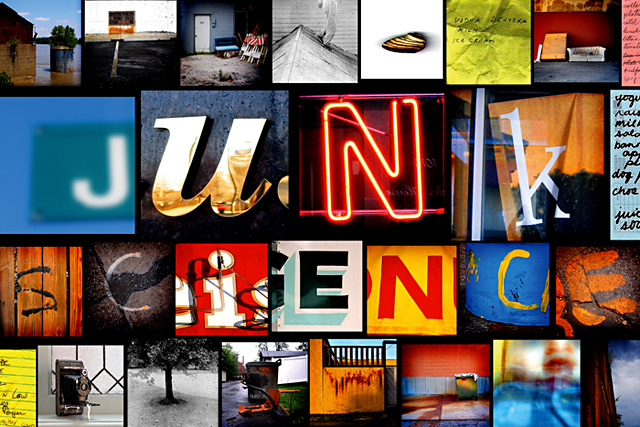
image from http://keaggy.com/junkscience/
Vocational Expert Problems
Readers may wish to read Nathaniel Hubley's law review note, which is a nice in-depth discussion of the VE problem, based in part on my book and the writings below. See also, my response to the OIDAP panel report. What is the OIDAP? Read the panel report.
_______________
_______________
It is usual for a vocational expert (VE) to testify a thousand times or more at disability hearings at the Social Security Administration. It is also not unusual to find attorneys who have spent their entire careers at those hearings without asking a single VE for the exact basis and methodology that would support or falsify the VE's testimony. After all of those years and all of those hearings, such an attorney has no way of knowing if the VEs gave honest and accurate answers, or if the testimony was made up out of whole cloth.
The Social Security Administration uses a sequential evaluation process to evaluate disability claims. At step five of the sequential evaluation process, the SSA often uses vocational experts. When the vocational expert (VE) gets to the part of the testimony about specific jobs and especially numbers of jobs at your disability hearing (to prove you or your client not disabled), the VE may start making everything up. This is a sad fact, given that in FY 1999, government payments to VEs totaled $21.6 million to 1,337 VEs.
I suggest you insist on understanding how the VE knows what the VE says he or she knows. Don't settle for the idea that the allegation of 25-years experience gives the VE an intuitive grasp that there are 12,432 unskilled, one-armed, illiterate, sedentary inspectors in your part of the woods, or nationally. When the VE gives the based upon my experience answer, the VE should be able to back answer up with explanations that support the testimony. In the absence of that foundation, the testimony is simply ipse dixit.
So, when the VE states that her experience tells her x about occupation y a reasonable line of questioning would be to assume that the testimony is unproven and lacks a foundation.
Then, methodically inquire into the facts needed to prove the testimony true. You can help the ALJ and the VE with your questioning. For example you may wish to ask a line of questions that ask, when, where, and under what conditions did the VE actually see the occupation, and how those observations led to the testimony.
Where were the observations made? Get the address and contact information. How were the observations documented? Did the VE conduct job analyses of the occupation using applicable standards that are recognized in her profession? If so, ask the VE to provide the documentation generated by that work. What were the applicable job analysis standards? How were they applied in this situation? If the VE is not qualified to perform job analysis, or if the VE has not used job analysis standards that are applicable to her profession, then object with precision.
Sadly for the administrative process, when pressed on these kinds of reasonable and thoughtful requests, almost all VE testimony falls apart. Sometimes the VE falls apart too, spinning wilder and more fanciful stories about who, what, where, when and why.
Keep in mind that the Daubert standards are the child of the conservative judicial framework in the federal court system. District Court judges conduct very detailed Daubert hearings every week in every District Court. These judges, especially conservative judges, understand junk science when they see it, even if you never use the name Daubert at the Social Security Administration.
When the VE provides who, what, where, why, and when, ask to leave the record open and verify the information. If there are problems, have somebody such as another VE, or a private investigator, provide a written report summarizing the problems. For example, if the ABC company happens not to exist, then the VE could not see the jobs there. If the VE never spoke to anybody at the XYZ company, there are problems there as well. If the VE never received any education in occupational analysis, or if the VE never got her degree in this or that from a school that does not exist, then the VE's honesty and qualifications are junk as well.
In your communications to the ALJ, the AC and the District Court, honestly object in detail to every broken link in the chain that allegedly stretched from the VE's experience to the VE's conclusion. Also, object to the use of that broken chain by the ALJ.
This does not pose an unreasonable burden on the VE and you are helping the ALJ by showing that the Commissioner has not met her burden of proof. Presumably, the VE is a professional who uses real professional standards in her honest work. Producing the supporting framework will be no problem for such a well-organized pro. Where such a framework never existed or contains fatal flaws, that pro should stay home.
In any event, it is not enough for the VE to give the bottom line because:
If scientific, technical, or other specialized knowledge will assist the trier of fact to understand the evidence or to determine a fact in issue, a witness qualified as an expert by knowledge, skill, experience, training, or education, may testify thereto in the form of an opinion or otherwise, if (1) the testimony is based upon sufficient facts or data, (2) the testimony is the product of reliable principles and methods, and (3) the witness has applied the principles and methods reliably to the facts of the case.
Fed.R.Evid. 702; Donahue v. Barnhart, 279 F.3d 441, 446 (7th Cir. 2002).